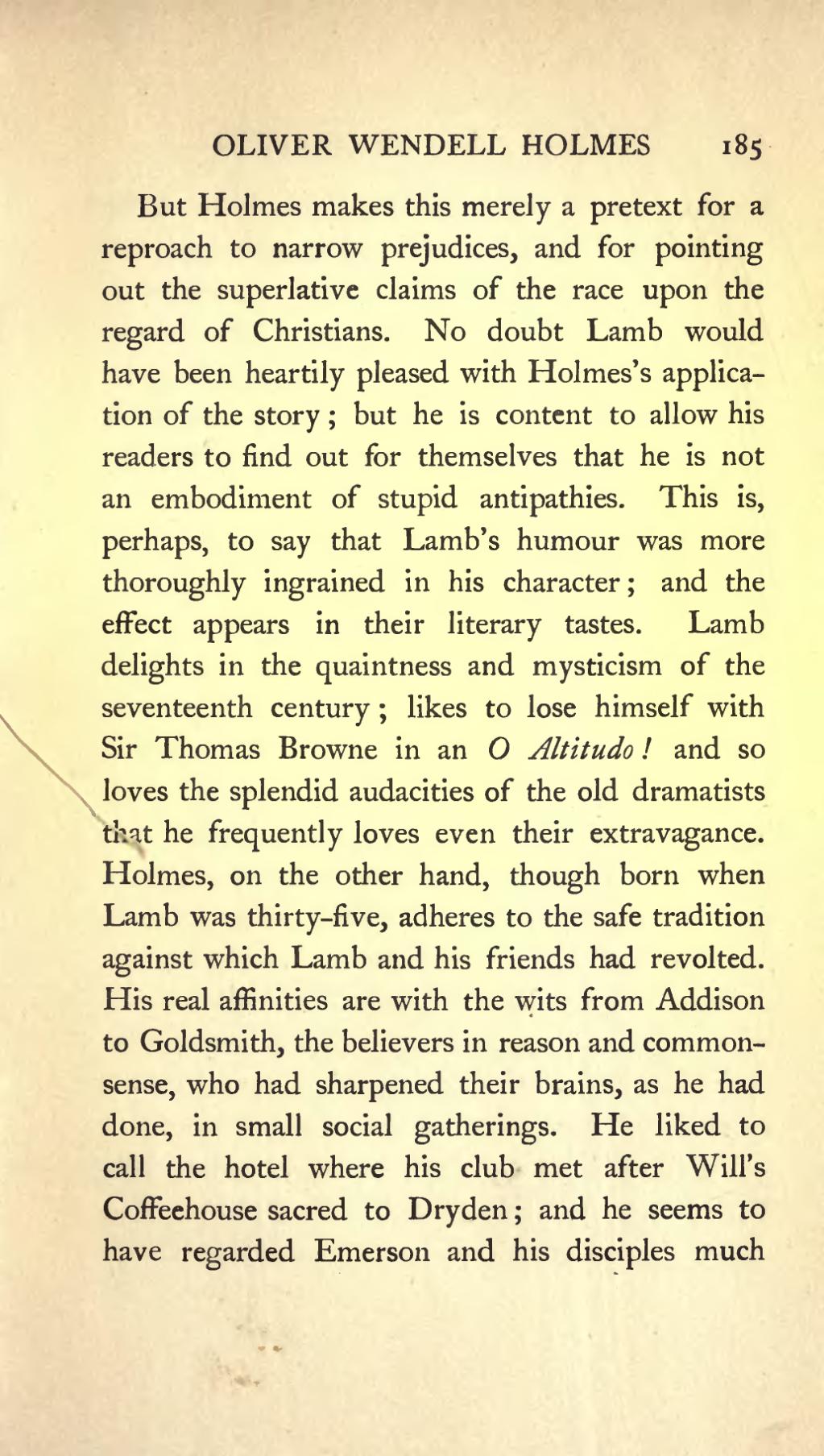But Holmes makes this merely a pretext for a reproach to narrow prejudices, and for pointing out the superlative claims of the race upon the regard of Christians. No doubt Lamb would have been heartily pleased with Holmes's application of the story; but he is content to allow his readers to find out for themselves that he is not an embodiment of stupid antipathies. This is, perhaps, to say that Lamb's humour was more thoroughly ingrained in his character; and the effect appears in their literary tastes. Lamb delights in the quaintness and mysticism of the seventeenth century; likes to lose himself with Sir Thomas Browne in an O Altitude! and so loves the splendid audacities of the old dramatists that he frequently loves even their extravagance. Holmes, on the other hand, though born when Lamb was thirty-five, adheres to the safe tradition against which Lamb and his friends had revolted. His real affinities are with the wits from Addison to Goldsmith, the believers in reason and commonsense, who had sharpened their brains, as he had done, in small social gatherings. He liked to call the hotel where his club met after Will's Coffeehouse sacred to Dryden; and he seems to have regarded Emerson and his disciples much
Page:Studies of a Biographer 2.djvu/197
This page has been validated.
OLIVER WENDELL HOLMES
185
